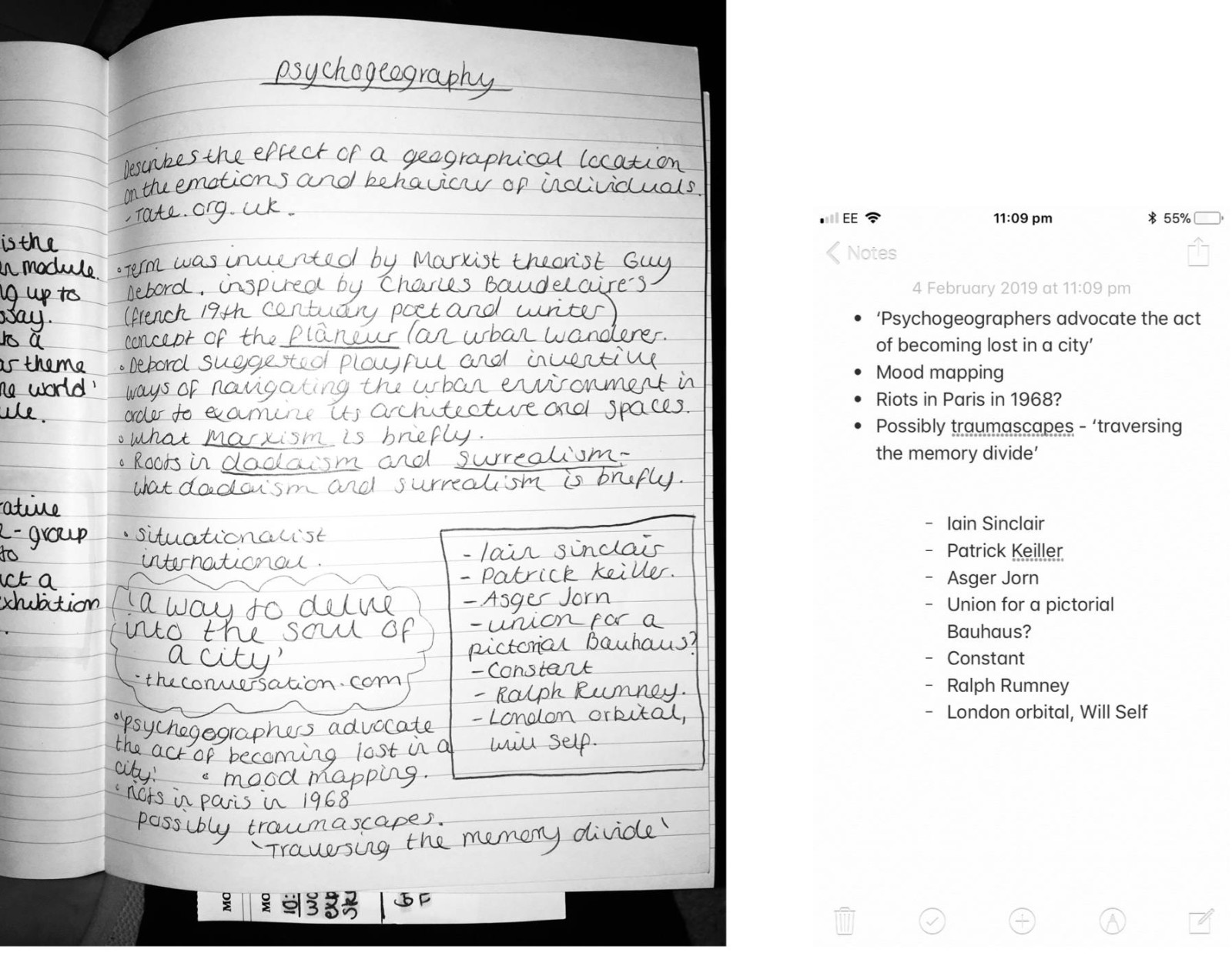
‘The study of the precise laws and specific effects of the geographical environment, consciously organized or not, on the emotions and behavior of individuals.’ It has also been defined as ‘a total dissolution of boundaries between art and life’
Inspired by 19th century writer and poet Charles Baudelaire’s concept of the flâneur, Marxist theorist Guy Debord coined the term psychogeography in 1955 in order to explore how different places make us feel and behave. Psychogeography can be seen as a playful and imaginative way of seeing the environments around us – with roots in dadaism and surrealism, it explores ways of ‘unleashing the subconscious imagination’ and approaching environments in a way that is less functional and more open to exploration.
Debord was also the founding member of Situationist International, an avant-garde movement of artists, writers and poets who wanted a revolutionary approach to architecture.

Dadaism
Dadaism was an avant-garde art movement formed in negative reaction to the horrors of the First World War. It favoured rebelling against the standards of society. Often satirical and illogical in nature, its purpose was to ridicule the meaninglessness of the modern world. The movement peaked from 1916-1922 and influenced surrealism and pop art.
Surrealism
An avant-garde movement in art and literature beginning in the early 1920’s that sought to liberate the creative potential of the unconscious mind – by the irrational juxtaposition of images, for example.

Marxism
‘The political and economic theories of Karl Marx and Friedrich Engels, later developed by their followers to form the basis of communism.’
Marxism in Art
‘Any serious study of art shows that, while art can have its own dynamic, it is clearly rooted in a wider historical context and that even the most refined and abstract art has an impact of some kind on the world around it. Yet there’s a persistent myth that art is a mode of self-expression that reflects only the spirit of the artist and the prior history of art itself. This myth is an aspect of bourgeois idealist philosophy, the notion that people’s ideas determine history while ideas themselves are only influenced by the prior development of ideas themselves. In this view of history, a great artist might have an impact on history, but he or she does so as an act of genius that is rooted only in the artist’s own spirit. This refusal to understand the basis of art in its material context explains why idealist philosophy finds it so hard to even define what art is. Without a wider context, any such definition must be to some extent arbitrary’.
Quote found in ‘Marxism, Materialism and Art – In Defence of Marxism’
What do Marxists Have To Say About Art?
